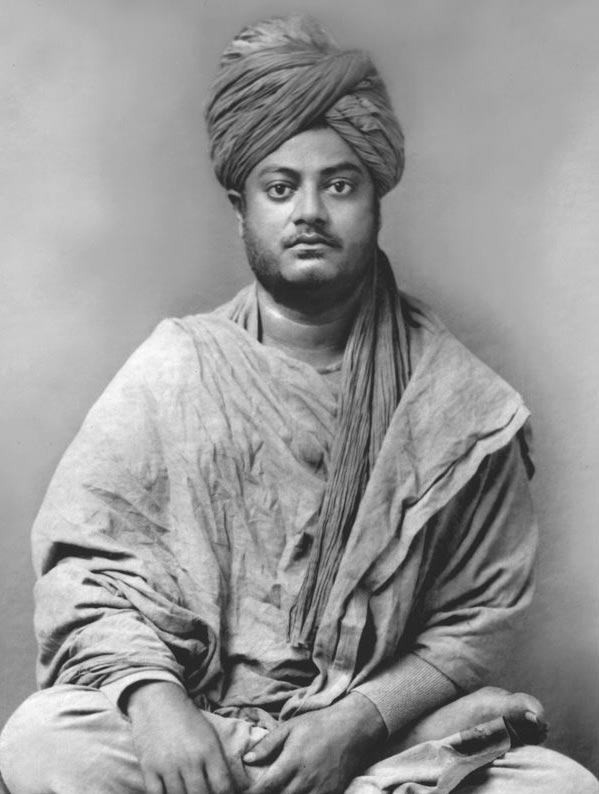“Sectarianism, bigotry, and its horrible descendant, fanaticism, have long possessed this beautiful earth. They have filled the earth with violence, drenched it often and often with human blood, destroyed civilizations, and sent whole nations to despair. Had it not been for these horrible demons, human society would be far more advanced than it is now. But their time is come; and I fervently hope that the bell that tolled this morning in honor of this convention may be the death-knell of fanaticism, of all persecutions with the sword or with the pen, and of all uncharitable feelings between persons wending their way to the same goal.”
The above quote was delivered by Swami Vivekananda, the man credited with first bringing Hindu spirituality to the West. With these words he concluded his welcome address to the Chicago Parliament of World’s Religions.
In 1893.
Much has changed since then. Almost everything, in fact. But not quite.

I need to make one thing explicitly clear: I share this quote not in reference to one fanaticism, but all fanaticism, as Swami Vivekananda intended.
Because one fanaticism does not invalidate the existence of others. I have traveled far enough to see that fanaticism lives in every country, culture, creed, race, and religion, without exception.
Fanaticism also lives in you. It surely lives in me.
The common tendency following tragedies like Christchurch is to point an angry finger. But just as one fanaticism doesn’t invalidate others, it doesn’t legitimize it either.
Regardless of who’s doing it, a pointed finger is the progenitor of the pointed gun.
From some who make these gestures, though, I hear a tiny prayer for a better world. It’s smothered beneath layers of anger, which themselves coat and soothe wounds of sadness. But the prayer is there.
Such bent prayers happen often today from people who profess to know better, including me.
So to straighten my intention I pause to ask: “Am I embodying the world I want to live in? Or am I reinforcing what already is?”
In that spirit, I’ve found a more effective posture for my prayers: hands pressed together in front of my chest.
One benefit is that this posture makes it impossible to point. Go ahead and try.
My mom also used to borrow the famous West African proverb when she said to me, “Will, when you pray, move your feet.”
So I ask a second question, “Is this prayer inert, a weak expression of a mere wish? Or does my prayer have sufficient force to propel me even one inch forward in my own evolution?”
Because that is the only evolution I – or any of us – have control over.
In this way, as I send my thoughts and prayers out for some persons to heal and perhaps others to change, I also pray that I may continue to find the strength and discipline to work meaningfully towards bettering myself as an individual within this collective human body.
May I handle my life- and soul-burdens of fear, anger, resentment, judgment, delusion, and bitterness.
May I recognize and withdraw my projections, and learn to see clearly.
May I break my addiction to blame.
And in doing so, may I bravely lead the way for others, never asking anyone to do any portion of the work I am unwilling to do myself.

Dedicated to my entire Kiwi whānau. Arohanui ki a koe. <3
For a powerful essay on breaking addiction to blame, please click here.
Thanks to my friend Tim for his invaluable contributions to this article.




